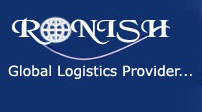
Understanding Custom Duties in Nigeria
Taxes imposed on items imported into a nation are known as custom duties or tariffs. They serve as a crucial revenue source for governments and are also used to protect domestic industries from foreign competition. The Nigeria Customs Service (NCS) is responsible for the administration and collection of customs duties in Nigeria.
The Harmonized System (HS) Code
The Harmonized System (HS) Code is an international standardized system used to classify goods for customs purposes. It is a six-digit numerical code that is universally recognized. The HS Code is used to determine the specific customs duty rate applicable to a particular import.
Factors Affecting Customs Duties
Several factors influence the amount of customs duty payable on imported goods:
- HS Code: The specific HS Code assigned to the product determines its duty rate.
- Value of the Goods: The value of the imported goods is a significant factor in calculating the duty amount.
- Country of Origin: The country where the goods were made or produced can influence the duty rate.
- Preferential Trade Agreements: Nigeria is a member of several regional trade agreements, such as the Economic Community of West African States (ECOWAS). These agreements often provide preferential tariff rates for goods imported from member countries.
Common Custom Duties in Nigeria
In addition to the basic customs duty, there are several other levies and charges that may be applicable to imported goods:
- Import Duty: This is the fundamental tax applied on imported goods. The rate varies depending on the HS Code of the product.
- Value Added Tax (VAT): VAT is a consumption tax levied on most goods and services in Nigeria, including imported goods.
- Import Surcharge: This is an additional charge imposed on certain imported goods.
- Comprehensive Import Supervision Scheme (CISS): This is a charge imposed on imported goods as destination inspection in Nigeria.
- ECOWAS Trade Liberalization Scheme (ETLS): This is a fee levied on imported goods to enable the operation of the Free Trade Area.
- Levy: This may be applicable in some circumstances to imported goods.
The Import Duty Process
The process of importing goods into Nigeria involves several steps related to custom duties in Nigeria:
- Declaration: Importers must declare the goods at the port of entry and provide necessary documentation, including the HS Code, value, and country of origin.
- Assessment: Customs officials assess the goods and determine the applicable customs duties based on the information provided.
- Payment: The importer is required to pay the assessed customs charges before the items can be released.
- Inspection: Customs officials may inspect the goods to verify that they comply with import regulations and that the declared value and description are accurate.
Customs Clearance Procedures
To facilitate the customs clearance process, the NCS has implemented several initiatives, including:
- Electronic Single Window (ESW): This is a digital platform that allows importers to submit and process customs documents electronically.
- Pre-Arrival Assessment (PAA): This is a process that allows importers to submit customs documents in advance of the arrival of the goods.
- Designated Examination Centers : These are specialized facilities where physical inspections of goods can be conducted.
Challenges and Reforms of Custom Duties in Nigeria
Despite these initiatives, the customs clearance process in Nigeria has faced several challenges, including:
- Corruption: Corruption has been a significant problem in this sector, leading to delays and increased costs for importers.
- Smuggling: Smuggling of goods into Nigeria has been a persistent issue, depriving the government of revenue.
- Complex Procedures: The customs clearance process can be complex and time-consuming, leading to delays and inefficiencies.
To address these difficulties, the Nigerian government has implemented a number of measures, including:
- Strengthening Anti-Corruption Measures: The government has taken steps to strengthen anti-corruption measures within the customs service.
- Improving Technology Infrastructure: The government has invested in technology to improve the efficiency of customs operations.
- Simplifying Procedures: The government has simplified customs procedures to reduce the burden on importers.
Tired of the hassle and uncertainty of Custom duties in Nigeria? Count on Ronish Nigeria Limited as your reliable ally. Our expert team simplifies the complex process, ensuring smooth and efficient customs clearance.
Conclusion
Customs duties play an important part in Nigeria’s economy. Understanding the factors that affect customs duties and the procedures involved in customs clearance is essential for importers and exporters operating in Nigeria. By staying informed about the latest developments in customs regulations and procedures, businesses can ensure compliance and minimize the costs associated with importing and exporting goods.
